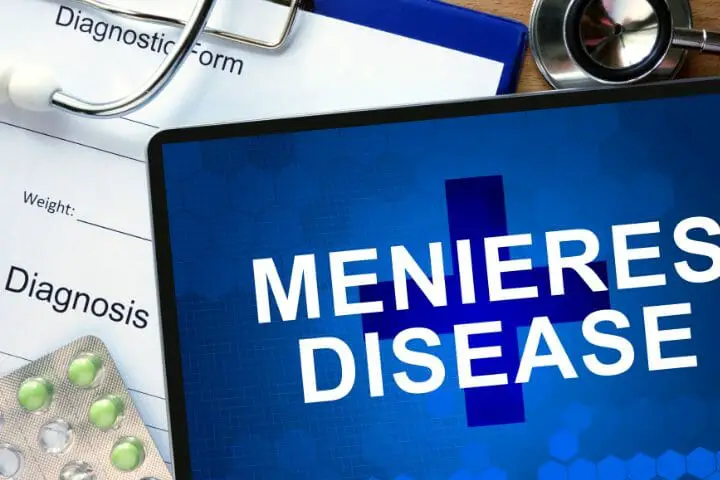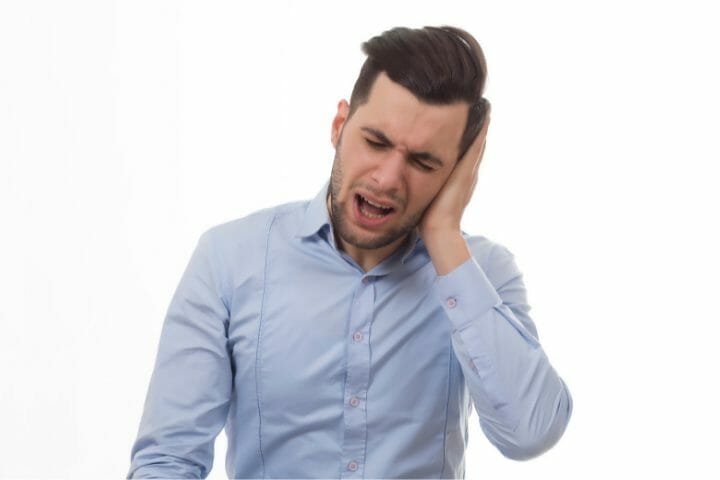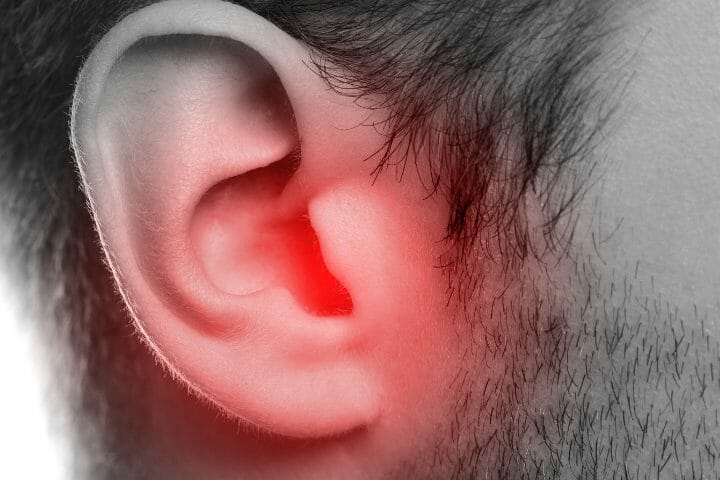Meniere’s disease causes problems in your ears, leading to major hearing . But can you get disability for Menieres disease? What do you need to apply for the same? Let’s find out in the article below.
Contents
Meniere’s disease affects the inner ear. It can cause ringing in the ears, hearing loss, and dizziness (vertigo). It is more common in women than men. Some people with Meniere’s disease may be eligible for disability benefits under SSA. Here we’ll explore what Meniere’s disease is, who qualifies for disability benefits, and how to apply.

What is Meniere’s Disease?
Meniere’s disease is an inner ear issue that can cause attacks of vertigo, hearing loss, pressure in the ear canal, tinnitus and even progressive hearing loss leading to permanent hearing loss. It is thought to be caused by an abnormality in the internal ear fluid, although the exact cause is unknown.
Symptoms of Meniere’s disease typically include episodes of vertigo that last for several hours or days. These episodes may be accompanied by nausea, vomiting, and sweating. During an episode of vertigo, you may feel unsteady and off-balance. You may also have difficulty hearing and may experience ringing in your ears (tinnitus).
Meniere’s Disease Condition and Symptoms
Meniere’s disease is a condition that can cause vertigo (or severe dizziness), balance issues, hearing loss, and tinnitus. While why Meniere’s disease happens is still a medical mystery, conventional wisdom points to problems with fluid in the inner ear. Meniere’s disease can be disabling and can cause great anxiety. There is no cure for Meniere’s disease, but there are treatments that can help manage the symptoms and improve quality of life.

Symptoms of Meniere’s disease include:
- Vertigo: This feels that you or your surroundings are spinning or moving even though there is no actual movement. Vertigo can be very severe and can last for minutes to hours. It can be so powerful that it can cause nausea and vomiting.
- Hearing loss: It can happen suddenly or gradually. In some cases, the hearing may return to normal between vertigo attacks.
- Tinnitus: This is a ringing, hissing, or roaring sound in the ear.
- Pressure in the ear: You may feel like your ear is full or blocked.
Meniere’s disease affects one ear rather than both in most cases. The symptoms often come on slowly over time. They can vary from mild to severe and can come and go. Some people have symptom-free periods lasting months or even years. There is no cure for Meniere’s disease, but there are treatments that can help manage the symptoms. These treatments can include:
- Medications: Several different medications can treat Meniere’s disease. These include diuretics, which can help reduce the amount of fluid in the inner ear, and antiemetics, which can help relieve nausea and vomiting.
- Dietary changes: limiting salt intake can help reduce fluid retention and help control symptoms.
- Vestibular rehabilitation therapy: This type of physical therapy can help train the brain to compensate for the loss of balance caused by Meniere’s disease.
- Surgery: In some cases, surgery may be necessary to improve hearing or relieve symptoms.
If you think you may have Meniere’s disease, it is essential to see a doctor for an evaluation.
You might also like to read: Can You Get Disability For Occipital Neuralgia?
Is Meniere’s Disease a Disability?
The Social Security Administration (SSA) recognizes Meniere’s illness as a disability in Section 2.07 of the Blue Book and the medical guide used to make that determination (as a disturbed function of the labyrinthine-vestibular function). You may be eligible for Social Security Impairment benefits if you cannot work because of your Meniere’s Disease disability.
As stated in Section 2.07 of the Blue Book, a person with Meniere’s disease must have frequent attacks that disrupt their balance, tinnitus, gradual hearing loss, and a disordered function of the vestibular labyrinth indicated by caloric or another vestibular test.
You must demonstrate that your loss of hearing is due to Meniere’s disease and cannot be corrected with a hearing aid through hearing tests. You can show that your better ear has a hearing threshold sensitivity of at least 90 decibels for air conduction and bone conduction at maximally corresponding levels, as determined by a the average of threshold hearing levels 2000, 1000 and 500 Hz. You can also demonstrate a 40% or less speech discriminating score in the better ear.
You can apply for disability benefits for Meniere’s disease online, by phone, or at a Social Security Administration office. To complete the application, you must follow a specific procedure.

Disability Available for Meniere’s Disease
Meniere’s disease is a progressive disorder, meaning it can get worse over time. If you have Meniere’s disease, you may be eligible for disability benefits.
A diagnosis of Meniere’s illness is listed in Section 2.07 of the blue book, the medical guide used by the SSA to accept or refuse claimants’ requests for benefits.
There are two types of disability benefits available to those with Meniere’s disease: Supplemental Security Income (SSI) and Social Security Disability Insurance (SSDI). For SSDI, you need to have worked enough years to earn enough “work credits.” For SSI, you must have a limited income and few assets.
To apply for either program, you will need to fill out an application and provide medical evidence of your medical conditions. The SSA will then review your case and decide whether or not you are eligible for benefits.
If you are approved for disability benefits, you will receive monthly payments that can help you cover your living expenses. You may also be eligible for assistance, such as Medicare or Medicaid.
If you have Meniere’s disease, don’t hesitate to apply for disability benefits. The process can be lengthy and complicated, but it is worth it if you are approved. An experienced disability attorney can help you navigate the application process and give you the best chance of success.
You might also like to read: Can You Get Disability For Psoriatic Arthritis?
Filing for SSD with a Meniere’s Disease Diagnosis
It can be challenging to get approved for Social Security disability benefits with a Meniere’s disease diagnosis. It is essential to understand the process and what documentation you will need to submit to increase your chances of success.
1. Gather Documentation
The first step is to gather all of the necessary documentation. This includes your medical records, test results, and other documentation supporting your diagnosis. Your doctor will need to fill out a detailed questionnaire about your condition and how it affects your ability to work.

2. Submit an Application
Once you have all of the necessary papers, you will need to apply for Social Security disability benefits. You can do this by mail, online, or in person at your local Social Security office.
3. Wait for a Decision
Once your application has been submitted, you will need to wait for a decision from the Social Security Administration. This can take several months. If your claim is approved, you will begin receiving benefits immediately. If SSA denies your claim, you can appeal the decision.
4. Appeal a Denial
If your claim for SSD benefits is not accepted, you have the right to re-appeal the decision. The re appeal process can be complex, so it is essential to understand all of the steps involved before you begin.

5. Stay Healthy and Employed
While you are waiting for a decision on your Social Security disability claim, it is essential to stay as healthy as possible. This means eating a balanced diet, exercising regularly, and getting enough rest. Working, even part-time, can also help improve your chances of getting approved for benefits.
Even though you may understand the process, we will still advise you to talk to a disability lawyer.
You might also like to read: Can You Get Disability For POTS?
How Does the VA Rates Meniere’s Disease?
The VA uses four main criteria to rate Meniere’s disease: 1) frequency and severity of vertigo attacks, 2) hearing loss, 3) tinnitus, and 4) balance problems. The most common way Meniere’s disease is rated is by using the “vertigo attack scale.”
The vertigo attack scale goes from 0 to 5, with 0 being no attacks and 5 being constant, severe attacks. If you have mild vertigo attacks (1 on the scale), you will be rated 10%. If you have moderate vertigo attacks (2 on the scale), you will be at 30%.
If you have severe vertigo attacks (3 on the scale), you will be at a 50% rating. If you have very severe vertigo attacks (4 on the scale), you will be at 70%. And if you have constant, severe vertigo attacks (5 on the scale), you will be rated at 100%.
In addition to the vertigo attack scale, the VA will also consider your hearing loss, tinnitus, and balance problems when rating Meniere’s disease. If you have mild hearing loss, you will be rated 10%. You will be rated at 30% if you have moderate hearing loss.
If you have severe hearing loss, you will be rated 50%. And if you are deaf in one ear, you will be rated at 100%. If you have tinnitus, you will be at 10% of the rating. If you have balance problems, you will be at 10%.

Frequently Asked Questions
Should I work with Meniere’s disease?
Because of the extreme severity of vertigo associated with Meniere’s disease, it can be dangerous for persons who suffer from it to be in an atmosphere where they are expected to be working.
Is ringing in the ears a disability?
Yes. Even after receiving therapy, tinnitus can be a debilitating illness. An attorney can help you enhance your chances of collecting long-term disability benefits for tinnitus (ringing in the ear); however, it may take some work to overcome the obstacles some insurance companies put in your way.
Wrap Up
If you have Meniere’s disease, it could be disruptive enough to stop you from being gainfully employed. You should apply for disability benefits and we have shared with you the steps through which you can get the benefits.
Thank you for reading the article, we hope we covered all your questions and doubts.
